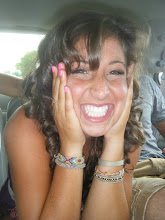"...this is why I keep writing war stories...Even now I haven't finished sorting it out...In the ordinary hours of life I try not to dwell on it, but now and then, when I'm reading a newspaper or just sitting alone in a room, I'll look up and see the young man step out of the morning fog. I'll watch him walk toward me..." (page 128).
In the chapter, "Ambush," O'Brien has a strong desire to be able to tell his daughter about the man he killed. When he states that he hasn't finished sorting it out, I think that is how he feels about all of the stories he writes. He is constantly narrating the flashbacks he has years after the war to work through the details and make sense of it all, so that one day he can tell his daughter about all of the horrible things he experienced while in Vietnam. In war movies, such as Brothers, the actors and actresses that return from battle always seem to be haunted by the ongoings that took place while they were away. However, O'Brien doesn't seem to be haunted exactly, but he seems to be confused. He can never give a definite description of what was real and what was a fantasy, which leaves the reader to differentiate between the two. It is difficult for me to determine whether or not these stories actually happened or if they are just written to provide examples to the kind of situations that took place during war. For example, in the story of the baby buffalo, did Rat Kiley ACTUALLY continuously shoot the animal, or was it just a a story to demonstrate the hardships the men had to undergo? It's amazing how these men have yet to turn crazy.
Thursday, August 12, 2010
Subscribe to:
Post Comments (Atom)


check
ReplyDelete